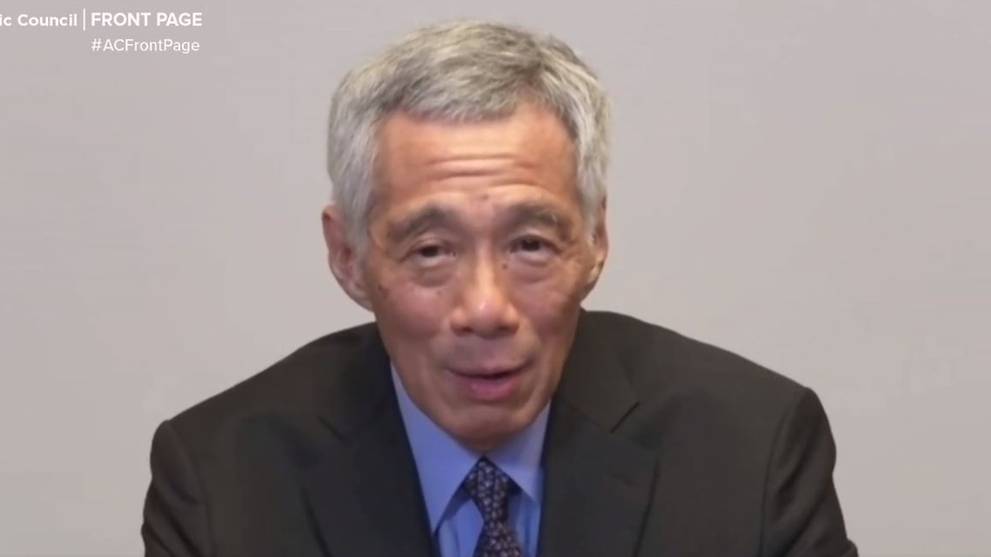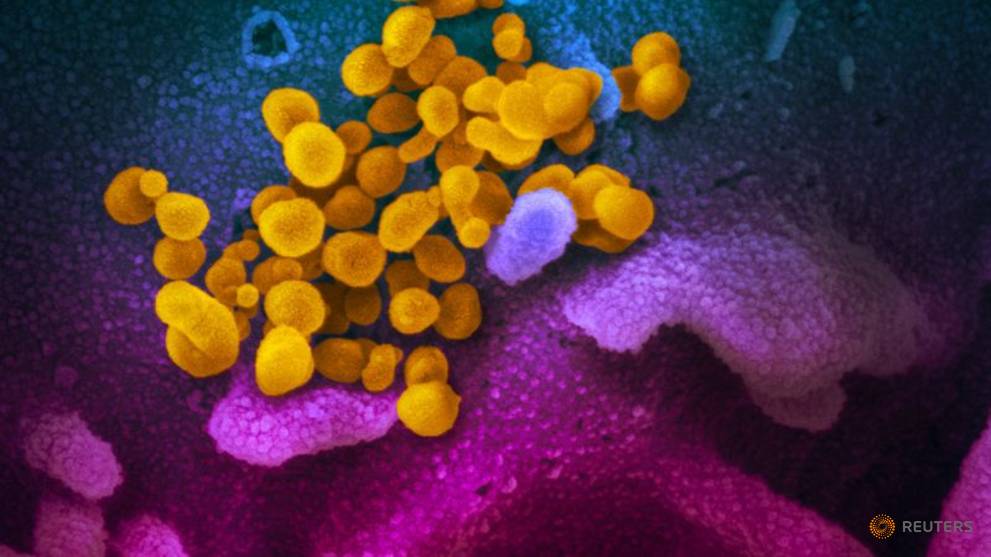KUALA LUMPUR: The guilty verdict against former Malaysian prime minister Najib Razak in his first 1Malaysia Development Berhad (1MDB) trial has enhanced the legitimacy of current leader Muhyiddin Yassin, analysts said.
Najib was found guilty on Tuesday (Jul 28) of all seven charges including abuse of power, money laundering and criminal breach of trust for misappropriating RM42 million (US$9.8 million) from a former 1MDB subsidiary, and was sentenced to 12 years in jail and fined RM210 million.
“Politically, (the verdict) strengthens PM Muhyiddin's hand. He can claim that the anti-graft drive that started under the Pakatan Harapan (PH) coalition is continuing under him,” said Dr Wong Chin Huat, a political analyst from Sunway University.
When the PH coalition won in the 2018 general election, it vowed to end corruption and commenced investigations on Najib and 1MDB.
Earlier this year, when the PH government fell and the Perikatan Nasional (PN) coalition took over, its leader Mr Muhyiddin pledged in his maiden speech as prime minister that he wanted to lead a government that is clean, has integrity and free of corruption.
For his Cabinet line-up, Mr Muhyiddin also steered clear of several senior figures from United Malays National Organisation (UMNO), who are embroiled in graft trials, including Najib.
Dr Oh Ei Sun, senior fellow from Singapore Institute of International Affairs, added that Mr Muhyiddin has not waned in his fight against corruption.
He noted how it was around five years ago that Mr Muhyiddin was dismissed from his Cabinet posts under the Barisan Nasional government after he publicly criticised Najib’s handling of the 1MDB scandal.
“With this verdict, Muhyiddin can now say that, ‘All along I was right’,” said Dr Oh.
Universiti Malaysia Sarawak’s Dr Jeniri Amir noted that the verdict will improve Mr Muhyiddin’s perception as a “just leader” and shows that the courts are independent from executive interference under his leadership.
“It is good for the government to show that the judiciary is independent … leave (these matters) to the court (with) no political intervention,” the academician said.
“Perikatan has set a precedence. It’s the way forward for Malaysia. That’s how a democratic country should operate,” he added.
Moreover, Dr Ahmad Fauzi Abdul Hamid from Universiti Sains Malaysia said that the verdict is positive for Mr Muhyiddin’s and Malaysia's global reputation.
“Muhyiddin, if his government survives, will want to use the judgment as evidence of the rule of law reigning in Malaysia and as such, long-term investors shouldn't be worried that kleptocracy is making its way back into the corridors of power,” the political analyst said.
READ: Former Malaysia PM Najib Razak sentenced to 12 years in jail following guilty verdict in 1MDB trial
VERDICT COULD DIVIDE UMNO
After the guilty verdict was announced, there were signs of discontent from UMNO members and supporters. Party president Ahmad Zahid Hamidi, who is also on trial for corruption, has called for all levels of the party to keep calm.
He added that Najib “still has room to obtain justice through the country’s legal process”.
However, other UMNO MPs might be keen for the party to move forward without Najib, said Dr Wong.
“(The verdict) may divide UMNO warlords as those are not implicated and those who hold senior positions in the government may be happy for the party to move on and leave Najib and gang behind,” he added.
Dr Oh echoed similar sentiments. He said that there are factions within PN and UMNO who are “not unhappy” to see Najib convicted.
“There are his rival factions and if Najib is politically incapacitated by these convictions of course they will be very happy. Then, they can outshine him and rise further to fulfil their political ambitions,” he said.
Minister for Science, Technology and Innovation Khairy Jamaluddin released a statement after the verdict, saying that even though Najib has room to appeal, the court’s decision has had a big impact on UMNO.
“In my opinion, even though (Najib) has room to submit an appeal, this is the moment for UMNO, as a political party to move forward and undergo a rejuvenation process,” he said.
“Even though some party members are entitled to give moral support to Datuk Seri Najib, I hope UMNO would not be dragged into the case. I believe all UMNO members will continue to remain loyal to the party, more than be loyal to any individual within the party,” Mr Khairy said.
“It is time for us to rebuild this sacred UMNO party and oversee a handover to a new generation of leaders that can potentially lead the party into the new era,” he added.
Speaking after the verdict on Tuesday, Najib has reiterated his innocence, while pledging to launch an appeal.
Mr New Sin Yew, a lawyer with Bon Advocates, told CNA that under Article 48 of the Federal Constitution, the verdict means that Najib will not be able to stand in any upcoming polls. Despite that, he will continue as MP for Pekan for the time being.
“The conviction disqualifies him from the upcoming general election . However, he continues to remain as an MP until his appeal process is exhausted,” said Mr New.
READ: 'We believe in our innocence', say Najib and lawyers as they pledge to appeal 1MDB verdict
SNAP POLLS NOT NECESSARILY IN MUHYIDDIN’S BEST INTEREST
Over the last few months, there have been growing calls from both sides of the political divide for Mr Muhyiddin to hold snap polls, as questions linger over whether he commands an effective majority in parliament.
In parliament earlier this month, Mr Muhyiddin tabled a motion to remove the parliament speaker, and this was passed by a whisker, with 111 MPs backing it while 109 lawmakers voted against the bid.
Mr Muhyiddin needs the support of the BN coalition, which has 43 seats in the Lower House, to consolidate his power.
In what may be a response to the unease among his partners in the PN coalition, Mr Muhyiddin said in a statement on Tuesday night that he understood the feelings and sentiments of his comrades about the verdict. Despite this, he stressed that the PN government would always uphold the rule of law.
Dr Ahmad Fauzi noted that Mr Muhyiddin’s PN coalition might suffer because Najib has strong support within UMNO.
“The verdict itself, while very much welcomed in the name of justice, puts Muhyiddin's government, already surviving on a razor-thin parliamentary majority, in a quandary,” he said.
“It now risks the support of UMNO backbenchers, at least some of whom might harbour sympathy if not outright support for Najib,” he added.
Some might argue that now might be a good time for Mr Muhyiddin to hold a general election and consolidate power, with his reputation boosted by this verdict against Najib.
However, analysts said that Mr Muhyiddin’s position is still precarious given that his Parti Pribumi Bersatu Malaysia (Bersatu) is still relatively weak in the PN coalition amid ongoing talks for seats allocation.
Dr Wong said: “A snap poll does not serve Muhyiddin's best interests as UMNO and PAS will cut down the number of seats Bersatu can contest in GE15 and shorten Muhyiddin's tenure.” PAS refers to Parti Islam Se-Malaysia.
He added that if Mr Muhyiddin can bide his time and survive with majority parliament support, he might call for polls at the right moment before the July 2023 deadline.
“Why should he rush to cut short his time?” said Mr Wong.
Concurring, Dr Oh outlined that Najib not being able to run in the next polls does not impact Bersatu’s balance of power in the PN coalition.
“Muhyiddin is not keen to call for polls because his party may be gobbled up by UMNO. Based on the results of the previous election, there are some seats that Bersatu won because the votes were diluted in three-cornered fights with BN and PAS.
“But with all three parties now in the same coalition, UMNO and PAS would claim they have the rights over these seats,” he added.
https://news.google.com/__i/rss/rd/articles/CBMiamh0dHBzOi8vd3d3LmNoYW5uZWxuZXdzYXNpYS5jb20vbmV3cy9hc2lhL21hbGF5c2lhLXBvbGl0aWNzLTFtZGItbmFqaWItYm9vc3QtbXVoeWlkZGluLWxlZ2l0aW1hY3ktMTI5NzE5MjbSAQA?oc=5
2020-07-29 04:17:46Z
52780952220091


